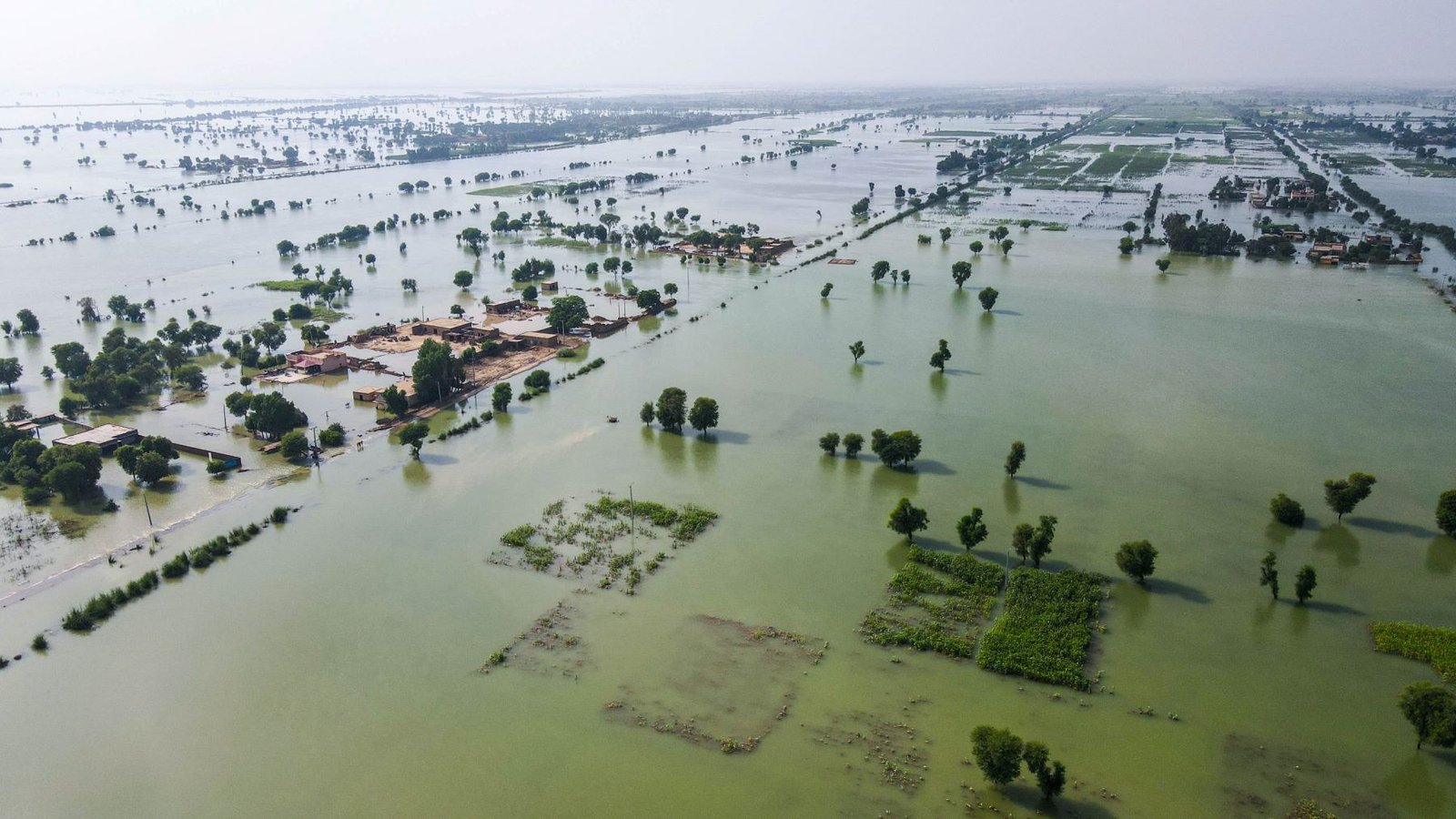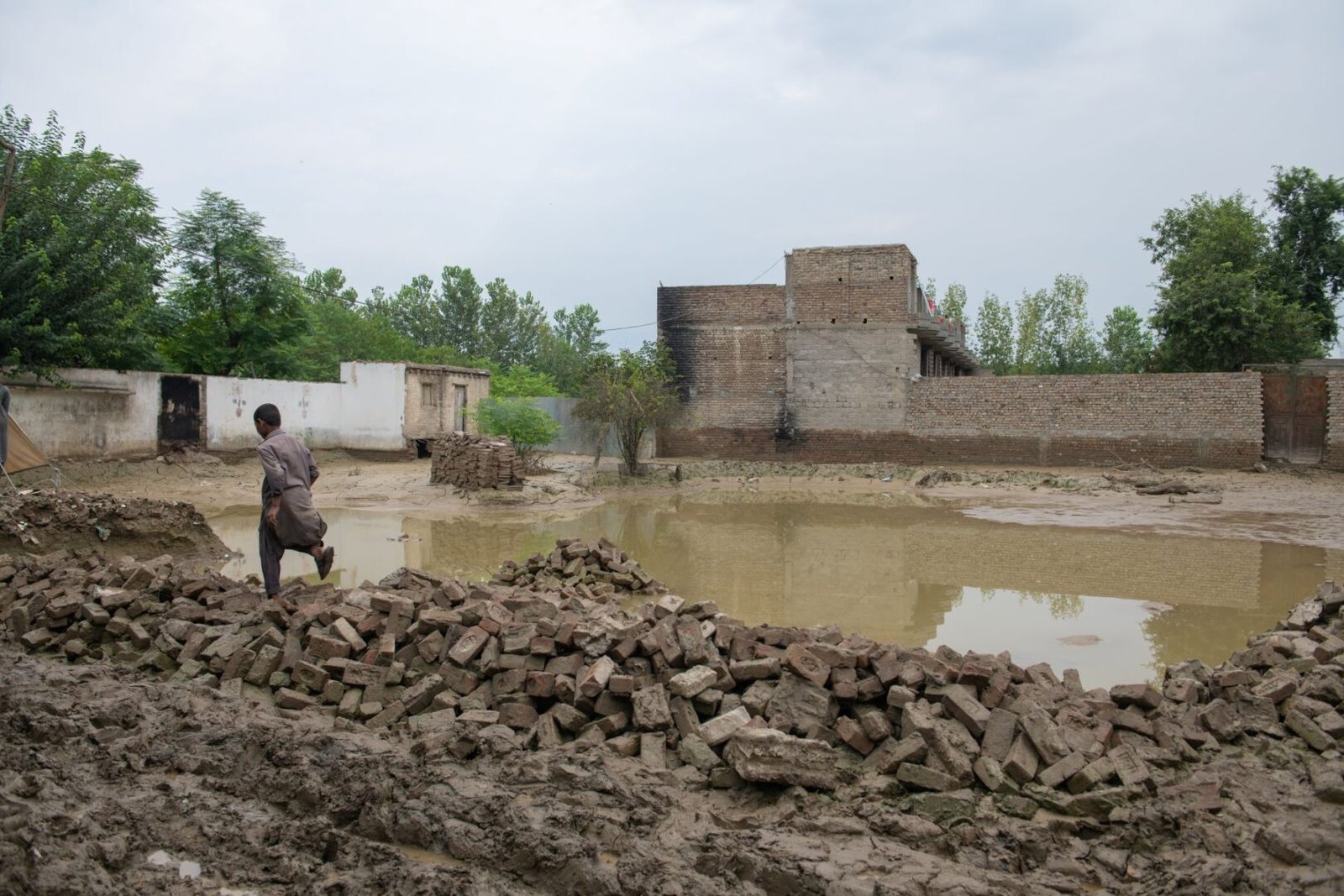Every year on World Mosquito Day, we are reminded of the enduring challenge posed by mosquito-borne diseases, which continue to take over 700,000 lives every year. These diseases do not exist in isolation; they are shaped by environmental conditions, shifting climate patterns, human activity, and the intricate interlinkages between humans and the ecosystems that surround them.

The devastating floods affecting Pakistan in 2022 affected over 33 million people and placed enormous strain on the public health system.
In Pakistan, mosquito-borne diseases such as malaria and dengue remain a significant public health and socioeconomic burden. Factors such as rising temperatures, heavy rainfall, and rapid urbanization are reshaping the spread and intensity of these diseases.
While Pakistan has achieved significant progress in reducing malaria – with a remarkable decrease of its case incidence by over 40% between 2015 and 2020 – the disease is still one of the most prevalent in the country. In recent years, extreme weather events have created ideal breeding grounds for mosquitoes, prolonged transmission seasons, and introduced the disease to areas that were previously unaffected. Malaria elimination efforts in Pakistan were severely hampered by the devastating floods in 2022 when the country faced 190% more rain than its 30-year average. The floods submerged one third of the country, affecting 33 million people, half of whom were children. They led to 6.6 million additional malaria cases over the 3-year period from 2022 to 2024.
Pakistan is also grappling with the spread of malaria-transmitting Anopheles stephensi mosquitoes, which thrive in urban environments. Already present in Pakistan, this mosquito is particularly concerning because it can breed prolifically in overhead tanks, wells, and water used for curing concrete at construction sites, as well as a variety of other man-made habitats. It can thrive in densely populated areas, increasing the risk of urban malaria outbreaks.

The floods in Pakistan in 2022 displaced huge numbers of people and significantly impacted the population’s health, particularly children.
Dengue presents an equally urgent threat. Globally, a substantial increase in dengue cases has been reported in the last five years, with Pakistan also witnessing an alarming spike. In September last year, Pakistan reported 2795 new dengue cases in just one week. Dengue is exacerbated by global temperature rises which increase vector abundance and geographic range of mosquitoes, as well as by urbanization, which creates more water-collecting trash, and favorable conditions for mosquito breeding.
All of these challenges complicate mosquito-borne disease control and mean we cannot rely on any single intervention. Many of the countries most affected by climate change contribute little to global emissions yet bear the heaviest consequences. Addressing mosquito-borne diseases in such contexts requires more than medical interventions; it demands sustained investment, strong multisectoral collaboration, meaningful community engagement, and innovations. National health authorities, local programs, research institutions, and international partners must work together to scale up vector surveillance and implement integrated, climate-resilient vector management strategies, especially in climate-vulnerable regions. Responding effectively to these converging threats will also require timely data sharing to enable evidence-based decision-making and accountability.
World Mosquito Day is not only a reminder of Sir Ronald Ross’ discovery in 1897 that female Anopheles mosquitoes are responsible for transmitting malaria parasites; it is a call to shape the future of the fight against mosquito-borne diseases. If we are to build a healthier world, we must act decisively, and together – bridging disciplines, borders, and sectors.
